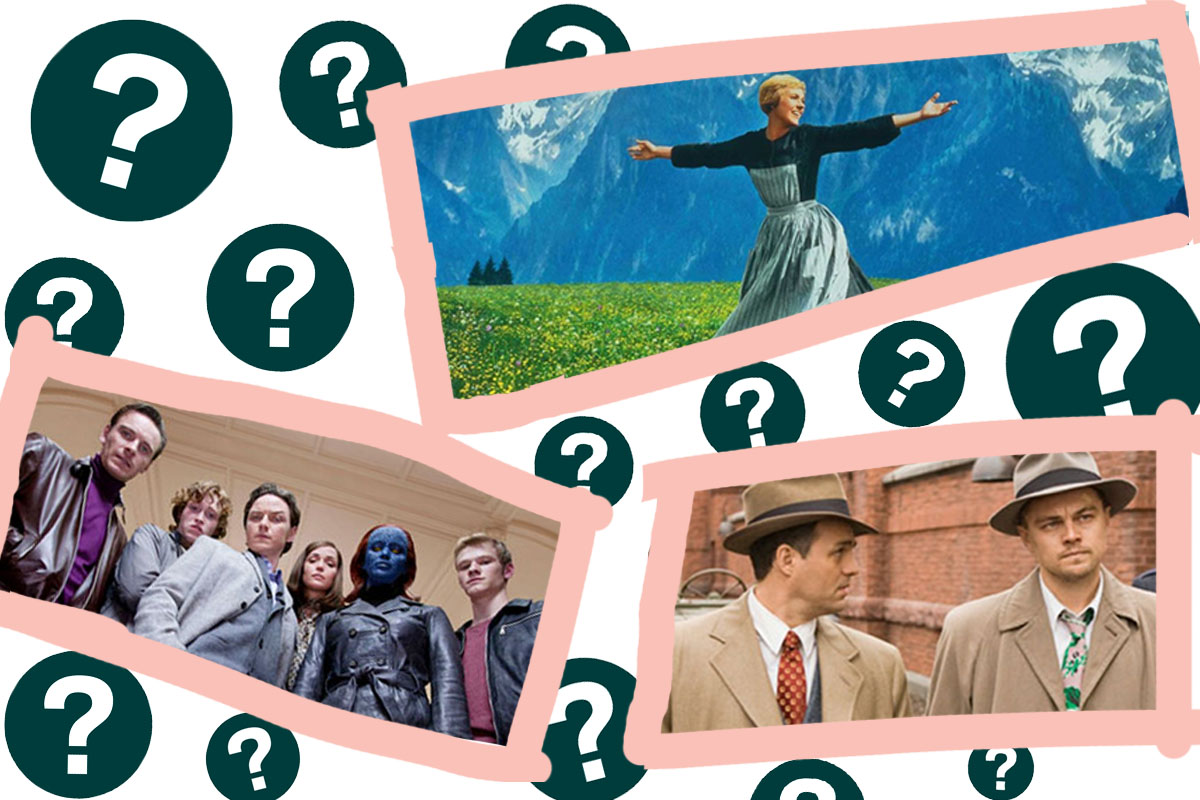Undeniably, Jewish culture is widespread throughout the entertainment world.
In movies, there’s usually a nod to the main protagonists’ nurturing Jewish mother, or some Jewish tradition or holiday is featured. If the lighter sides of Judaism are highlighted — the culture, the food, and more — so are some sad realities. Hollywood does not shy away from the stories of the Holocaust; there is a whole genre dedicated to sharing these narratives. Notable examples in this “Holocaust genre” include Steven Spielberg’s Schindler’s List, Alan J. Pakula’s Life is Beautiful, Roman Polanski’s The Pianist, and most recently, Niki Cargo’s Zookeeper’s Wife.
However, there are many movies that do not fall under this genre that also manage to reference the Holocaust. These films are typically unrelated to the Holocaust, and Judaism as a whole. Instead, they use the Holocaust as a backdrop to enrich their storylines, to build dramatic tension or create a more interesting plotline.
I’m here to say that’s not okay.
In 1965, 20 years after the end of World War II, Robert Wise directed and released the Sound of Music. This is a timeless romance film about a dissatisfied nun, Maria, who brings love and music into the home of the Von Trapp family and falls in love with the father. Although this film is a fictional version of the real experiences of the Von Trapp family during World War II, it was rooted in fact. The Captain, Georg (played by Christopher Plummer) was really a famous captain in the Austrian Navy in WWI, and he was not in favor of the Nazi regime.
In the film, the Von Trapp family narrowly escapes the Nazis at their last performance at the Salzburg Music Festival in 1936. However, this captivating, thrilling scene did not actually occur. In 2003, one of the real Von Trapps disclosed to Opera News how they left Austria and said, “We did tell people that we were going to America to sing. And we did not climb over mountains with all our heavy suitcases and instruments. We left by train, pretending nothing.”
Director Robert Wise chose to include the fabrication of the family escaping from the tumultuous grip of the Nazis in the end scene of the film. This was a purposeful gesture — the movie immediately turned into a suspense story, and the fate of the Von Trapp family was unknown.
This suspense and terror of the prospect of the family being captured and exposed by the Nazis was exactly Robert Wise’s intention. Yet, the political agendas, horrors, and devastation generated during the course of the Holocaust should not be adapted into a fictional scene that diminishes and undermines the real fate of the millions of victims.
In 2010 and 2011, two successful films came out that are not considered “Holocaust films,” yet both mentioned or were founded on notions of the Holocaust. Martin Scorsese’s Shutter Island (2010) depicts the story of a federal marshal, Teddy Daniels, who was assigned to a psychiatric hospital on Shutter Island to investigate a disappearance. This thrilling story appropriately delves into Daniels’ psyche, but then inappropriately incorporates the Holocaust, as scenes of his flashbacks at the Dachau concentration camp appear.
Scorsese could have chosen any moment in Daniels’ life that could have been traumatizing in order to highlight any psychological pathologies in his character, but he chose the Holocaust for its shock factor, which is gross and problematic.
Similarly, X Men: First Class (2011) uses the threat of the Nazis to inflate a character’s qualities. Set in the 1960s during the Cuban Missile Crisis, the film tells the story of the mutant race struggling to integrate into the society of the non-mutants. In the opening scenes, a young Erik Leshnsherr, also known as Magneto, and his mother are separated during sorting in what is clear to be a Nazi invaded Poland in 1944. The scene is hard to watch — it’s dark, raining, and Erik’s face of sheer terror is propelled into an act of desperation as he uses his mutant powers to bend the metal gates. Despite this scene serving as an insight into Magneto’s early life, the scene in the concentration camp has no relevance to the film — the movie focuses on the relationship of the adult pair, Charles and Magneto. The scene simply serves background — the Holocaust presents an automatic harsh, vengeful story for the villain of the series. Magneto’s retribution against the Nazis bolsters his nefarious, villainous traits as the main antagonist in the X Men series.
As a proud Jewish woman, it saddens me to think that this history is presented in pop-culture media as a mechanism to generate an emotional storyline, to enhance character development, to thicken a plot, or even to make a viewer shed a tear. The Holocaust happened, and for it to be memorialized, or even referenced, in movies with a plot totally unrelated can be quite distasteful. No amount of dramatic effect can alter history: It happened and it must never happen again. I believe it is crucial to remember, educate, and discuss the Holocaust, but with great delicacy and respect, as its own entity.



